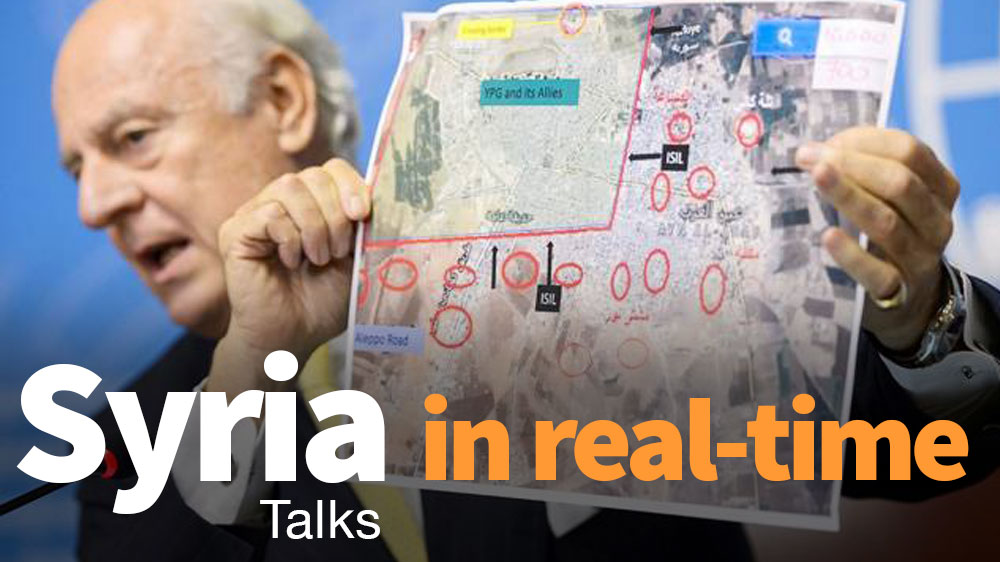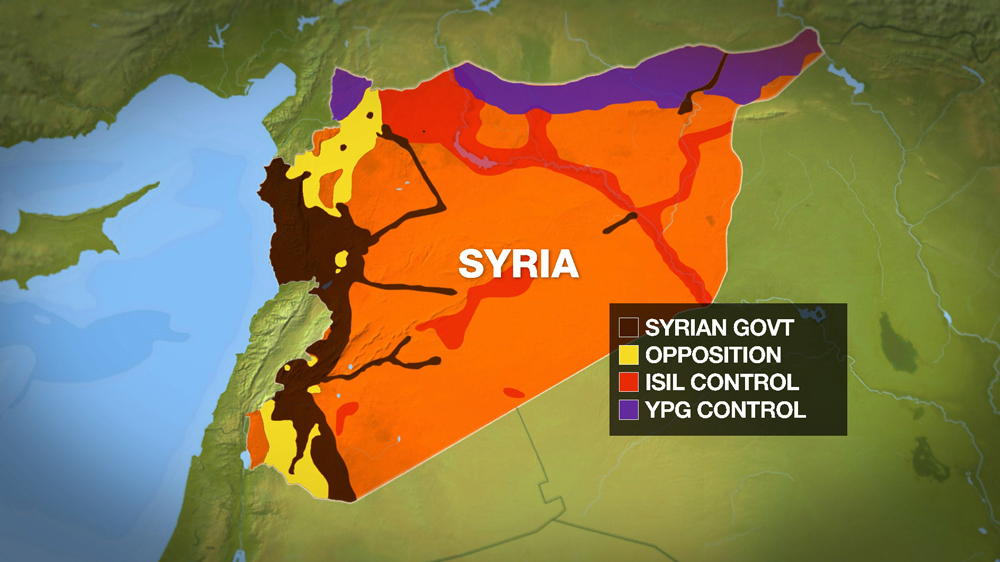Syria opposition threatens to walk out of Geneva talks
Opposition delegates say they will leave if government does not lift sieges on rebel-held areas and stop rocket attacks.

Syria’s main opposition bloc is holding its first meeting with UN envoy Staffan de Mistura in Geneva, before talks aimed at ending the war.
“We’re optimistic and we are here to really find a solution for all Syrians no matter what side they are on,” Salim al-Muslet, spokesman for the High National Committee (HNC), told reporters on Sunday.
“We wish to see food reaching the starving women and children. We want to see the women released from the regime’s prisons.”
Representatives of the Saudi Arabia-based group HNC landed in the Swiss city late on Saturday, a day after a delegation representing the regime of President Bashar al-Assad arrived and held preliminary talks with de Mistura.
HNC is threatening to pull out of the UN-sponsored peace talks if what it called the “crimes” of Assad’s government persist.
Speaking to Al Jazeera in Geneva late on Saturday, Muslet said: “We want the peace talks to work, but there is no seriousness on the part of the regime.”
Muslet said that the HNC would discuss with de Mistura on Sunday its conditions for joining the negotiations, which include the government agreeing to lift sieges on opposition-held areas and stop shelling them and agreeing to release prisoners.
![Opposition spokesperson Salim al-Muslet said the opposition would leave Geneva if its demands were not met [Basma Atassi/Al Jazeera]](/wp-content/uploads/2016/01/eeff21525d11410bb231fed955bc71d5_18.jpeg)
“The priority is to lift the suffering of the Syrian people,” he said. “If we see an implementation of these demands, including allowing trucks of aid into besieged areas, we will consider this as a sign of goodwill.”
Riad Hijab, the HNC coordinator who did not travel to Geneva, said in an Arabic statement posted online that “if the regime insists on continuing to commit these crimes, then the HNC delegation’s presence in Geneva will not be justified.”

The proposed intra-Syrian talks are part of a peace plan set out in November by external powers embroiled in the five-year-old conflict, some on different sides.
The process envisions elections within 18 months but leaves unresolved the future of Assad, whose government has been making gains on the ground since Russia began supporting it with air strikes since last September.
Another thorny issue is which rebel groups will be involved in the talks, though all sides agree on the exclusion of the Islamic State of Iraq and the Levant and the al-Nusra Front, which is seen as allied with al-Qaeda.
![Syrian chief negotiator Bashar al-Jaafari (R) held talks with UN envoy De Mistura on Friday [Martial Trezzini/EPA]](/wp-content/uploads/2016/01/2a8f2d32598143e19857e3357ceb7293_18.jpeg)
Gennady Gatilov, Russia’s deputy foreign minister, was quoted by the country’s Interfax news agency as saying that there would be no face-to-face negotiations, only so-called “proximity talks” in which the sides gather in separate rooms at the same venue with mediators shuttling between them.
The talks are the first since two rounds of negotiations collapsed in 2014. Syria’s conflict has killed more than 250,000 people, displaced millions and sent hundreds of thousands fleeing as refugees to Europe.
Air strikes and starvation
As the delicate process unfolded in Switzerland, there was no let-up in fighting in Syria. On Saturday, at least 15 people were killed and dozens wounded in suspected Russian air strikes targeting rebels near the northern city of Aleppo.
In the west of the country, opposition fighters said they had taken control of several checkpoints around the city of Hama, which is in a region where control is divided between government and opposition fighters.

Further south, residents of the besieged town of Madaya continued to die of starvation and a lack of medical supplies, despite the delivery of aid earlier this month, according to the Doctors without Borders (MSF) aid group.
READ MORE: Syrians are still starving to death
MSF said on Saturday that at least 16 people – close to one person a day – had died since three aid convoys entered the town, near the Lebanese border 40km northwest of the capital Damascus, on January 11.
The group said that an estimated 320 people in Madaya were suffering from malnutrition, 33 of whom were “in danger of death if they do not receive prompt and effective treatment”.
Additional reporting by Al Jazeera’s Basma Atassi in Geneva